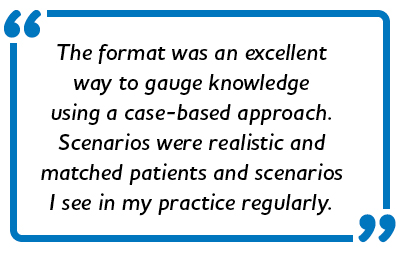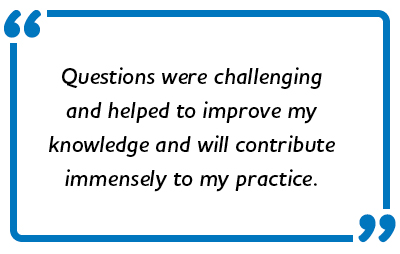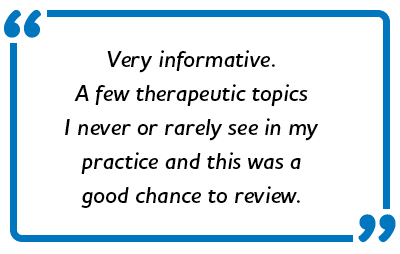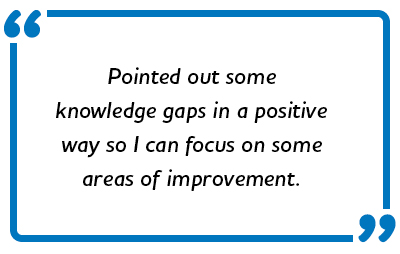Throughout May 2023, over 3,200 Part A pharmacists completed the College’s Knowledge Assessment. As the newest component of the Quality Assurance Program, the Knowledge Assessment assesses pharmacists’ ability to apply their clinical knowledge and their knowledge of current legislation and ethical obligations to everyday patient care.
With a focus on engagement and ongoing learning, the Knowledge Assessment works alongside the other elements of the Quality Assurance Program (learning portfolio, self-assessment and practice assessment) to optimize patient care.
THE KNOWLEDGE ASSESSMENT EXPERIENCE
The Knowledge Assessment uses a multiple-choice question format and registrants can access resources of their choice throughout the assessment, including the CPS. This is reflective of pharmacy practice where pharmacists are expected to access and apply current, reliable and evidence-based references to support patient care.
The multiple-choice questions are developed and reviewed by peer pharmacists from various practice settings, including community, hospital and other settings. Having a cross-section of pharmacists from different practice environments helps ensure the assessment is appropriate and reflective of the Part A pharmacist population in Ontario.
Immediately after completing and submitting the Knowledge Assessment, pharmacists are provided with a summary of their results presented by topic area to help them validate their areas of strength and identify areas of growth or continued learning.
OPTIMIZING PATIENT CARE
Part of the College’s commitment to protecting the public is helping to ensure that pharmacy professionals maintain appropriate skills and knowledge throughout their career. All components of the Quality Assurance Program, including the Knowledge Assessment, assure the public that pharmacy professionals are practicing to the standards of the profession and are engaged in safe, quality care.
With the open-book format, Part A pharmacists demonstrate their ability to access and apply current evidence-based knowledge to optimize the health outcomes of their patients – even if the knowledge is outside their current, specific area of practice. This supports individual and system-wide continuous quality improvement.
ASSESSMENT FEEDBACK
The College uses feedback gathered from registrants to inform and support enhancements to the Knowledge Assessment experience going forward.
The below is a sampling of what we heard from the May 2023 Knowledge Assessment participants:
- 99% of participants successfully completed the Knowledge Assessment.
- Of the registrants who completed the Knowledge Assessment feedback survey:
- 85% had an overall positive experience in completing the assessment
- Over 85% agreed the Knowledge Assessment was helpful in confirming their current core patient care/clinical knowledge.
- 88% agreed resources, such as the CPS, supported them in completing the Knowledge Assessment.
- Over 85% agreed the Knowledge Assessment helped them identify areas for continued learning.
- 84% agreed the Knowledge Assessment was reflective of pharmacist practice in general.

















